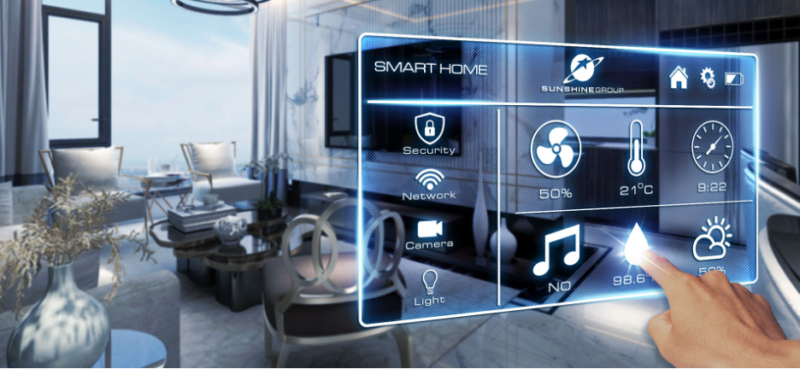In the rapidly evolving landscape of smart homes, one question that echoes persistently is, Who owns smart home data? As smart devices become more ubiquitous, seamlessly integrating into our daily lives, they raise critical questions about data ownership and privacy. For homeowners and businesses alike, understanding the dynamics of data generated by these devices is crucial, not just for safeguarding privacy but also for making informed decisions about technology adoption.
But what does it mean to own data in a smart home environment? And how do the dynamics of data ownership impact you as a homeowner or business? Let's delve deeper into these questions and explore the nuances of this modern digital dilemma.

The Complexity of Smart Home Data
Smart homes are a marvel of modern technology, offering unparalleled convenience and efficiency. From thermostats that learn your preferences to security systems that monitor your premises, these devices generate a vast amount of data. This data is not just limited to usage statistics but can also include personal information, behavioral patterns, and even sensitive details about your daily routines.
Given this complexity, its essential to understand what constitutes smart home data. Typically, it includes:
- Device usage statistics
- Personal preferences and settings
- Audio and video recordings
- Location data
- Interaction logs with other devices
Each of these data types can be valuable, both for enhancing the user experience and for potential exploitation, making the question of ownership even more pertinent.
Who Actually Owns the Data?
The question of data ownership in smart homes isn't straightforward. While you might expect that as the owner of the devices, you also own the data they generate, this isn't always the case. The reality often involves multiple stakeholders, including:
- Device Manufacturers: Many manufacturers retain ownership of data as per their terms of service.
- Service Providers: Companies offering cloud services for smart devices may also claim rights over the data.
- Third-party Applications: Apps that interact with smart devices might have access to user data.
The complexity of ownership is further compounded by the legal and regulatory landscape, which varies by region and can significantly influence how data is managed and protected.
The Role of Privacy Policies
Privacy policies play a crucial role in determining data ownership. These documents outline how data is collected, used, shared, and stored by companies. As a homeowner or business, its imperative to read and understand these policies to know what rights you have over your data. Key aspects to consider include:
- Data usage rights and permissions
- Data sharing agreements with third parties
- Data retention and deletion policies
Being proactive about understanding these policies can empower you to make informed decisions about which devices to integrate into your home or business.
Protecting Your Smart Home Data
Given the sensitive nature of the data generated by smart homes, protecting it should be a top priority. Here are some strategies you can implement:
- Secure Your Network: Ensure your home network is secure with strong passwords and encryption.
- Regular Device Updates: Keep your devices updated to protect against vulnerabilities. Learn more about the importance of regular updates.
- Privacy Settings: Adjust device settings to limit data sharing and collection.
- Understand Device Ecosystems: Choose devices from manufacturers with robust privacy policies. For more guidance, explore this smart home installation guide.
Legal Frameworks and Data Ownership
The legal frameworks surrounding data ownership are evolving, with several regions implementing stringent regulations to protect consumer data. The General Data Protection Regulation (GDPR) in Europe is a prime example, providing individuals with more control over their personal data. In the United States, the California Consumer Privacy Act (CCPA) offers similar protections.
These regulations require companies to be transparent about their data practices, giving consumers the ability to access, delete, and restrict the use of their data. As these frameworks continue to develop, they will play a pivotal role in defining data ownership in the digital age.
The Future of Data Ownership in Smart Homes
As technology continues to advance, the question of who owns smart home data will become increasingly significant. Innovations in artificial intelligence and machine learning will generate even more data, potentially reshaping the landscape of data ownership.
For homeowners and businesses, staying informed and proactive about data practices will be essential. Embracing technology responsibly involves not only leveraging its benefits but also understanding and managing its risks. For additional insights into managing smart home technology, explore our article on password safety.

FAQ
Can I delete my smart home data?
Yes, most manufacturers and service providers offer options to delete your data. However, the process can vary, so it's essential to check the specific terms of service and privacy policies.
Is my smart home data shared with third parties?
It depends on the privacy policy of the device manufacturer or service provider. Some companies may share data with third parties, while others may restrict access.
How can I ensure my smart home data is secure?
Ensure your network is secure, regularly update your devices, and adjust privacy settings to limit unnecessary data sharing. For more tips, check our guide on smart battery storage.
